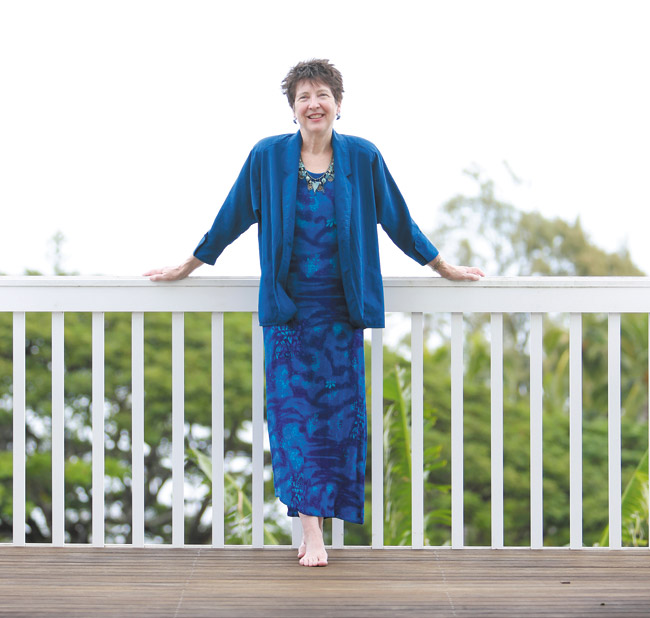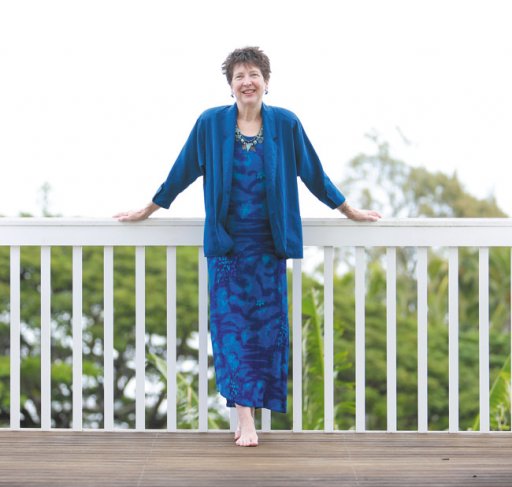Full Circle With Martin
Attorney Ellen Carson receives the Martin Luther King Jr. Peacemaker Award, named for the man who inspired her to take up law with an emphasis on civil rights, which included winning reparations for Japanese Americans interned during WWII
When an assassin’s bullet shattered the cool of a spring evening in Memphis in April of 1968, he hoped that he had extinguished the fire with which civil rights leader Martin Luther King Jr. had lived.
But rather than dousing the flame, he instead disseminated it to millions of hearts across America, including that of 13-year-old Ellen Carson, who lived on the opposite side of the state in the still-segregated town of Kingsport.
Today, Carson doesn’t recall ever seeing a black person until junior high, when she started noticing the separate bathrooms, water fountains and churches.
“I suddenly realized there was a whole other race that lived on the other side of the railroad tracks and there was no overlap,” says Carson, who moved to the Islands 28 years ago to get away from such bigotry.
“I became very influenced by the civil rights movement, and through my faith and my feelings that we were all created equal, that the message of love should go out equally to everybody.”
This epiphany from junior high led her to a career fighting for the underdog, which this week culminates with her being selected for the award named in honor of the man who started it all for her: the Martin Luther King Jr. Peacemaker Award.
It is presented by Church of the Crossroads and St. Andrews Cathedral to honor a Hawaii community leader whose life and work exemplify commitment to the ideals of peace, justice and equality in the spirit of Dr. King.
Even before Carson consciously learned about civil rights and its need for defenders, she saw it exemplified in her parents. Her mother worked as a schoolteacher, her father as an engineer, but these were just titles, as their hearts and bodies were dedicated to the less fortunate.
There were trips to China to teach and to Nicaragua to build homes — volunteering was a way of life for them, and this inspired Carson to take up for the underserved.
After graduating from Harvard Law School with an emphasis on civil rights and liberties, she got a job working for the federal government in that field, but unfortunately the politics of the time were not on her side.
“President Reagan had just been elected, and he was not interested in pursuing civil rights even though we had titles for that in the federal government,” remembers Carson.
“So I started looking around for something else, and found a notice on the Harvard Law School placement office that said ‘looking for an attorney to bring a class action lawsuit for Japanese Americans redress for actions of the U.S. during World War II.'”
Her first day on the job she spent in Congress listening to former Secretary of Defense John McCloy testify that interning American citizens was not only the right choice, but something he would do again.
While, for most people, the 1980s are remembered for opulence and narcissism, for Carson it was a decade dedicated to fighting a Sisyphean battle for the victims of internment camps.
Victory never could come legally for her, the hurdles of the statute of limitations were too high to overcome, but nonetheless she tirelessly crisscrossed the country speaking to whomever would listen. Twice they got the suit brought before the Supreme Court, but were turned away.
Yet, much like her idol, it was the message that carried even more power than her actions, and finally it was Congress that took up their cause and passed the Civil Liberties Act of 1988, granting reparations to those interned, and it came with a signed letter of apology from the president.
The first checks were given to the oldest survivors in a ceremony at the Department of Justice. Nine Issei were rolled in on wheelchairs to receive their reparations from Attorney General Dick Thornburgh, who knelt before them to present the checks so he could be at eye level.
“That was a pretty magical moment,” says Carson, who got to witness the ceremony. “Everybody was there in their wheelchairs, so it wasn’t really proper for him to be standing to do it. But to see him on his knees, it was a sweet victory.”
In the years that have followed, she has helped serve the marginalized and maligned in the Hawaiian Islands through her work with the LGBT community, Institute for Human Services and Sex Abuse Treatment Center.
The work she has done has not been one for accolades, but to better the world around her. But this particular award does have a personal significance for Carson.
“It is very special to me because he has been a huge hero of mine. I really embraced his ideals of faith in action and nonviolence, equality and justice,” she says.
“Those things are the main drivers in my life and what is in my heart, and are the reason I got a law degree and how I think each of us should live our lives.”







